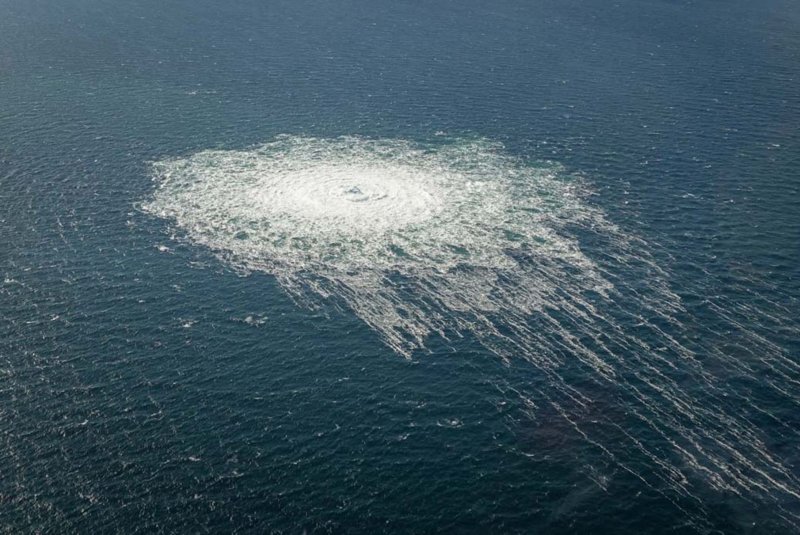Swedish authorities said they seized material and confirmed leaks in the Nord Stream pipeline were the result of sabotage. Photo by Danish Defence/UPI |
License Photo
Oct. 6 (UPI) -- The Swedish government said Thursday that "certain seizures" have been made in its criminal investigation into seafloor detonations along the Nord Stream pipeline system in the Baltic Sea.
Russian energy company Gazprom holds the majority stake in Nord Stream AG, the company operating both strings of the Nord Stream pipeline network. Underground detonations recently caused huge plumes of the potent greenhouse gas methane to bubble to the sea's surface, ostensibly from ruptures along the pipeline network.
The Swedish government said its security teams had conducted a criminal investigation into the incident, a probe that strengthened suspicions that the network was the target of sabotage.
"During the crime scene investigation, certain seizures have been made," the government said.
Citing prohibitions on access to the region in question, Nord Stream AG said Wednesday it was unable to carry out its own inspections "due to the lack of earlier requested necessary permits."
Finger-pointing followed reports of the leak last week, with rumors surfacing that anyone from the United States to Russia itself was behind the incident.
"As part of the work, the seizures will now be reviewed and analyzed," Swedish authorities stated. "The security police assess that what happened in the Baltic Sea was very serious."
The Nord Stream network has long been a source of concern for Western allies wary of Russia's grip on the European energy sector. Neither section of the pipeline was in service at the time of the explosions, though the targeting underscores how geopolitically sensitive the energy sector has become.
Speaking Wednesday, European Commission President Ursula von der Leyen said the incident has exposed those vulnerabilities.
"For the first time in recent history, it has become a target," she said.
Nord Stream extends from Russia's far western border through the Baltic Sea to Germany. Leaks ended last week and Nord Stream AG said the system is now stable.















